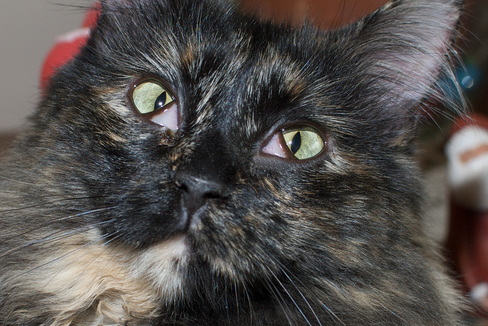Feline Herpes VirusWhat is it?
Feline herpes virus most commonly infects kittens, but can affects cats of all ages. Vaccinated kittens may still develop the disease, but the illness is less severe. Approximately 80% of FHV infected cats become latent carriers with a 45% chance of viral re-activation. Adult cats with eye disease due to FHV are more likely to be suffering from viral re-activation than from a primary FHV infection. The feline herpes virus can hide quietly in the ganglion (nerve roots) of your cat’s nervous system. During periods of stress, the virus can travel down the nerves and injure the conjunctiva and cornea in one or both eyes. Affected cats begin squinting, tearing, and may paw at the eye(s). Some cats may also sneeze, stop eating and feel poorly. |
Symptoms |
Symptoms include conjunctivitis, sneezing, non-healing corneal ulcers, ocular and nasal discharge with a reluctance to eat and play.
|
Treatment |
With good nursing care most kittens return to normal within a few weeks.The severity of the disease and the eye structures involved will determine the treatment. Topical antivirals include Idoxuridine and Trifluridine eye drops. L-lysine (an amino acid) supplement helps to stop the virus from replicating, and may decrease future re-activation. Topical and systemic antiviral medications can control FHV, but the virus can not be cured. It must be controlled for the life of your cat.
|

